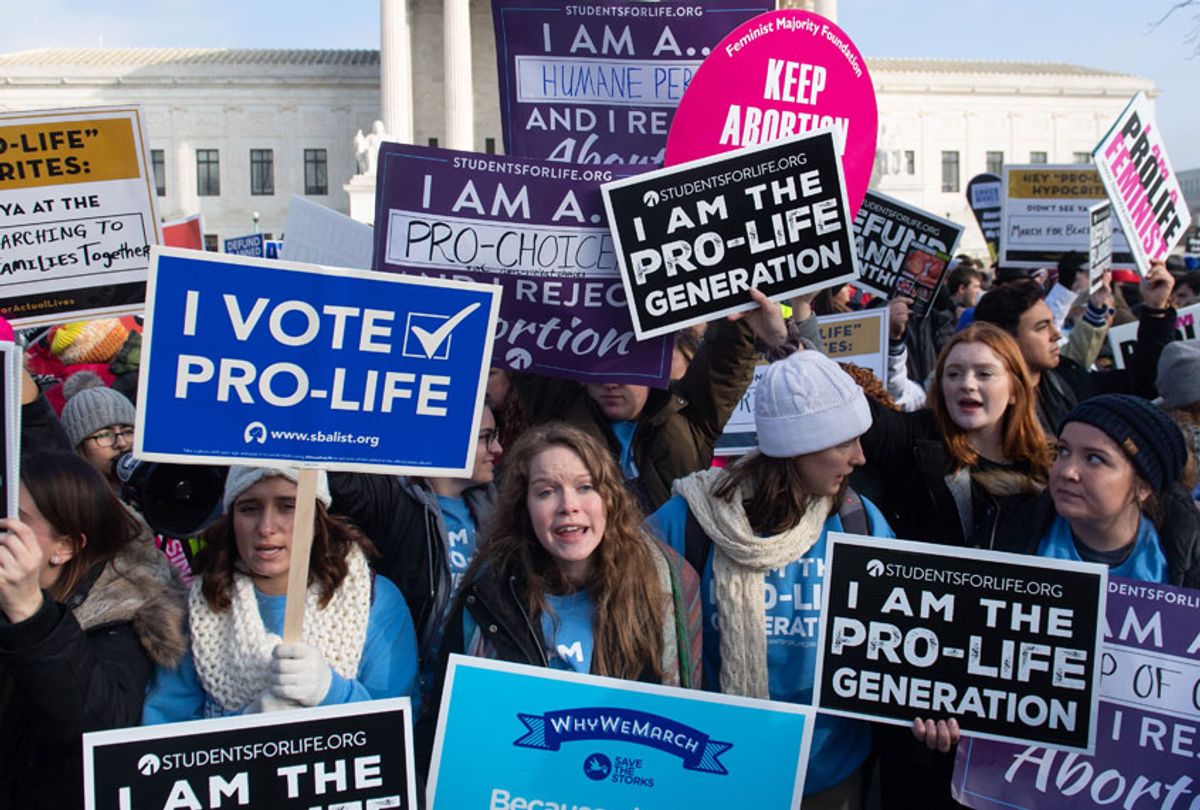Missouri's Republican-controlled House of Representatives voted Friday to ban abortions eight weeks into pregnancy, even in cases of rape, incest or human trafficking.
The bill, known as the Missouri Stands for the Unborn Act, says a non-complying doctor could be charged with a felony and face up to 15 years in prison for performing an abortion in most circumstances. Women who receive abortions would not be criminally penalized.
The legislation declares that "God is the author of life" and that the "state and all of its political subdivisions are a 'sanctuary of life' that protects pregnant women and their unborn children."
Missouri's House voted 110-44 in favor of the legislation. The measure passed in Missouri's Republican-led Senate yesterday. It now heads to the desk of Gov. Mike Parson, a Republican, who is expected to sign the bill into law in about a week.
"My administration will execute the laws the legislature passes, and this pro-life administration will not back down," Parson told reporters Wednesday evening.
The legislation has moved through Missouri at a time when opponents of legal access to abortion nationwide have been emboldened by the transformation of the Supreme Court with the confirmation of Justice Brett Kavanaugh, which secured a conservative majority on the nation's highest court for decades to come.
It places Missouri in line with states including Georgia, Ohio, Kentucky and Mississippi that have passed so-called "heartbeat" bills outlawing abortions once a fetal heartbeat can be detected, which can be as early as six weeks and before many women know they are pregnant. Utah and Arkansas also voted to ban the procedure after the second trimester.
Alabama Gov. Kay Ivey, a Republican, on Wednesday night signed into law a ban on abortions at any time absent a medical emergency. The legislation, called the Human Life Protection Act, prohibits abortions at every stage of pregnancy, and it is poised to become the country's most restrictive abortion ban. A doctor could be charged with a felony and face up to 99 years in prison for performing an abortion in most circumstances.
The bills, along with similar proposals currently under consideration in more than a dozen other states, are the latest effort by conservatives to challenge Roe v. Wade, the landmark U.S. Supreme Court decision from 1973, which said a woman has a constitutional right to end a pregnancy until the fetus is developed enough to live outside the uterus.
Supporters of such restrictions say fetuses are humans and deserve human rights. Many supporters are Christians, who believe the Bible forbids most abortions.
Opponents of the legislation, including the American Civil Liberties Union and Planned Parenthood, have vowed to sue to block the measure if it becomes law. They intend to argue that a state cannot restrict access to abortion before viability — the point at which a fetus can survive outside the uterus — which is a right that federal courts have repeatedly reaffirmed in decisions since Roe. Any restriction on abortion must contain exceptions to protect the life and health of the woman and cannot create an "undue burden" on a woman seeking an abortion — a standard that was established in Planned Parenthood v. Casey" in 1992 and clarified in Whole Woman's Health v. Hellerstedt in 2016.
Prior to this week's votes, Missouri already had highly restrictive abortion laws. Women seeking abortions have just one clinic — Planned Parenthood in St. Louis — which provides the procedure. The organization immediately condemned the Senate vote.
"Politicians are putting the health and lives of Missouri women at risk in their race to make our state the one that overturns Roe v. Wade at the Supreme Court," M'Evie Mead, director of policy and organizing for Planned Parenthood Advocates in Missouri, said in a statement. "These bans on safe, legal abortion will have real costs — expensive legal costs and human costs for the women and families who need reproductive health care."

Shares